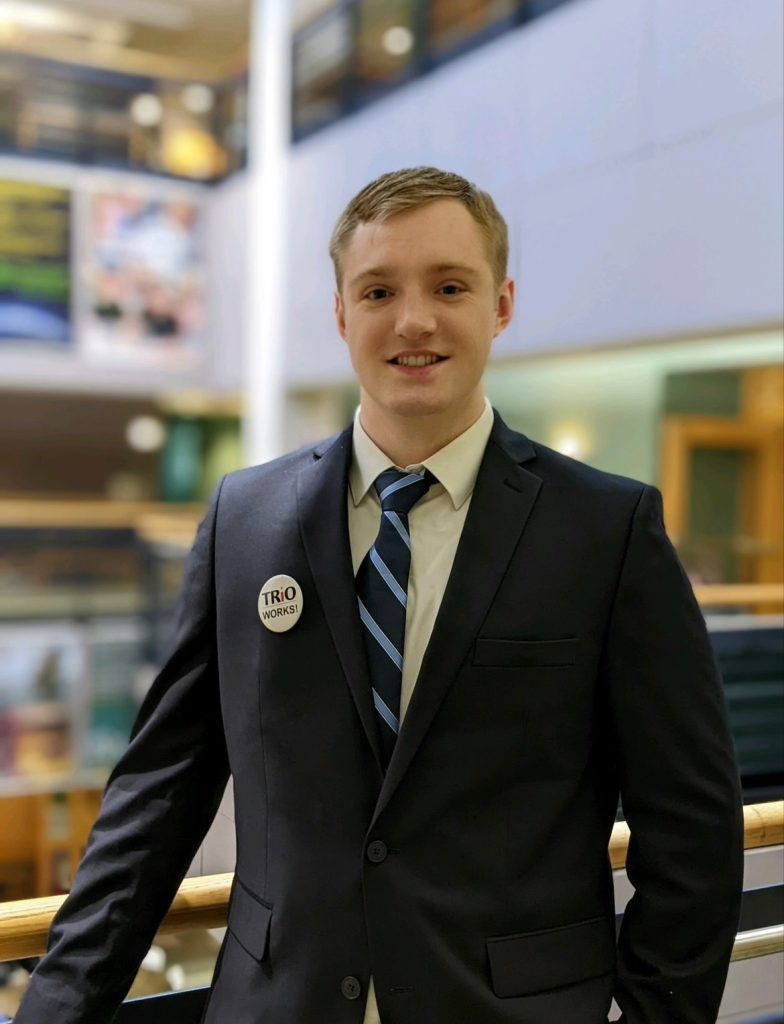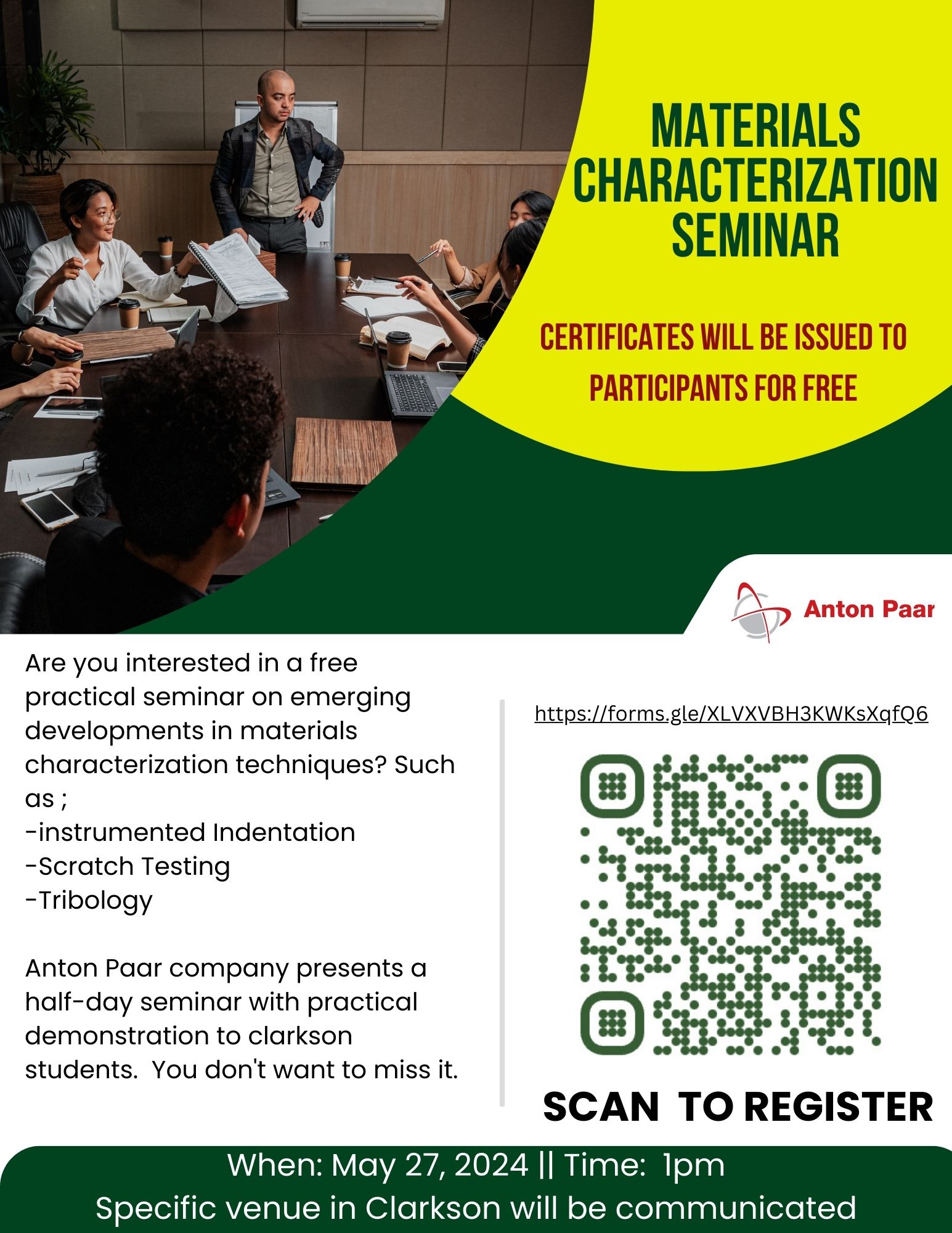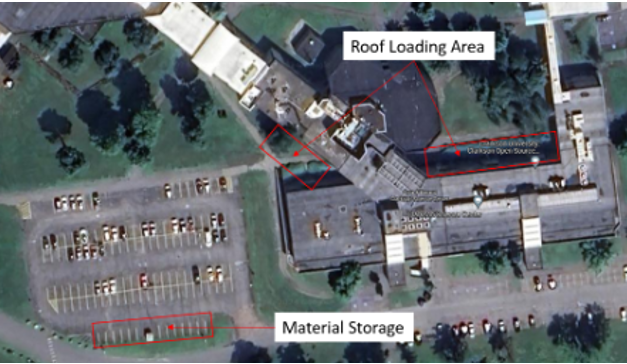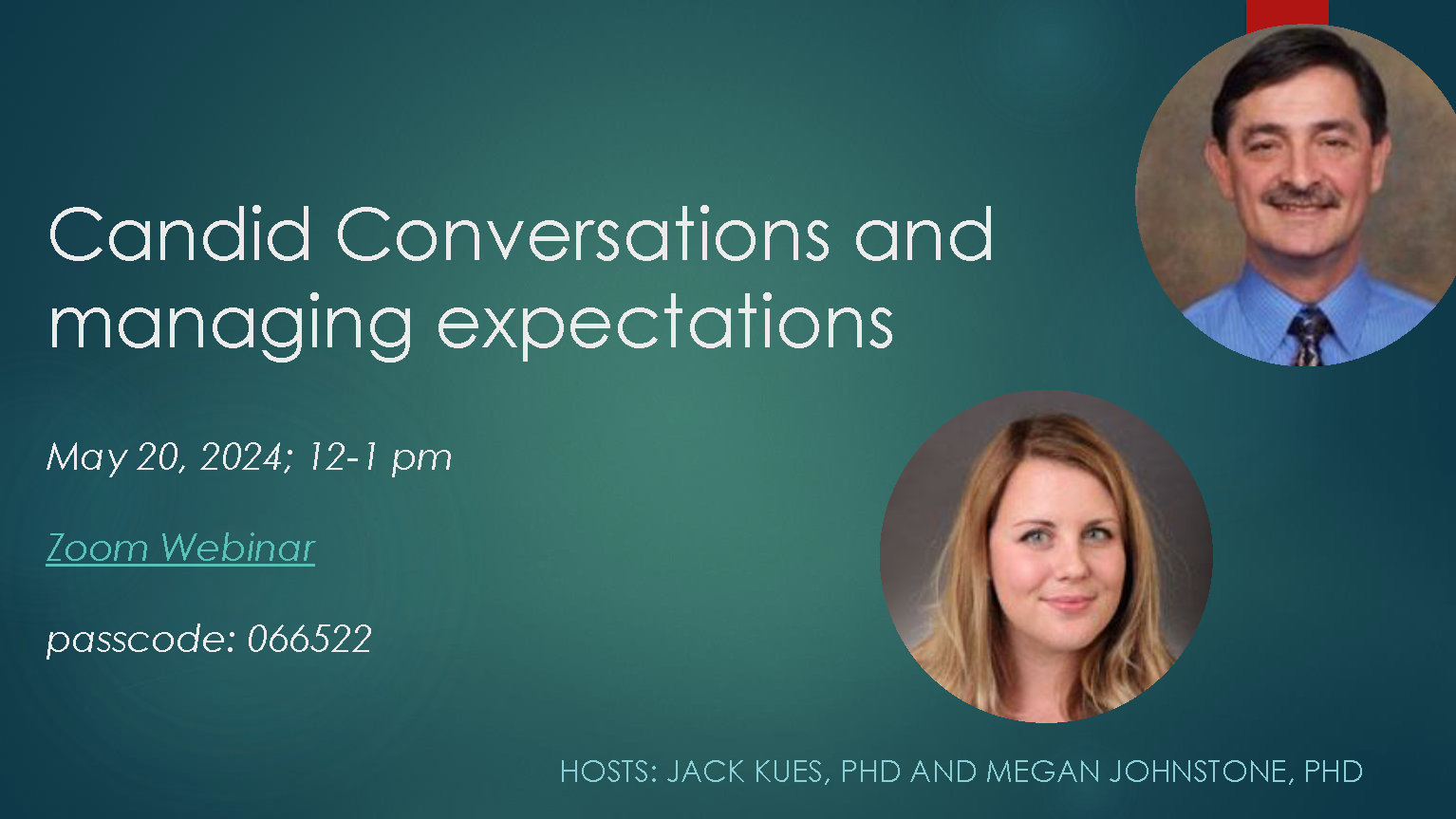Clarkson University senior Herbert D. Fountain, a biomolecular science and biology major from Little Falls, N.Y., has received the McNair SUNY Graduate Diversity Fellowship from Cornell University, where he has been accepted into the biological and biomedical sciences Ph.D. program.

The McNair Fellowship is awarded to top applicants from either first-generation/low income or diverse backgrounds. Fountain will receive an annual stipend, waived tuition and a healthcare package, guaranteed for five years.
He will also be designated a Graduate School Dean’s Scholar by Cornell, a separate honor for his commitment to excellence and potential for making meaningful contributions to his discipline of biomedical science. The biological and biomedical sciences program will allow Fountain to curate his Ph.D. across departments involved in biological research.
In late April, at the Association for Equality and Excellence in Education annual conference in Puerto Rico, Fountain will also receive an undergraduate award for his research and academic achievement.
Fountain, who grew up on a dairy farm in rural central New York, was the first in his paternal line to earn a high school diploma, the first in his family to attend college, and plans to be the first in his family to earn a Ph.D.
He says that he came to Clarkson specifically because of The Clarkson School, a selective early college program for high academic achievers. “Being able to combine my last year of high school with my first year of college, alongside a diverse cohort of other competitive early college students, was an attractive challenge not being offered anywhere else.”
“I majored in both biomolecular science and biology because I wanted to understand how living things function at both the smallest and largest scales of life,” says Fountain. “A biomedical science and technology minor then gave me the background needed to apply this knowledge in a manner focused on potential applications in the clinic.”
Fountain says that his favorite aspect of the biology major has been the flexibility and encouragement to pursue independent research, both at Clarkson and other institutions. “The Biology Department really promotes gaining a diverse range of research experiences, which I believe has prepared me for life after Clarkson,” he adds.
Like many Clarkson undergraduates, Fountain also performed research as part of his studies. He worked primarily in the lab of Assistant Professor of Biology Susan Bailey, where he studied a wide range of topics, including bacterial evolution, single-cell population dynamics, antibiotic resistance, and plant pathogens. During the height of the pandemic, he also worked with Assistant Professor of Biology Andrew Davinack to create some of the first phylogenetic trees of emerging SARS-CoV-2 strains. “Dr. Bailey and Dr. Davinack each supported and guided my development as a scientist through the many ups and downs of research,” says Fountain.
During his junior year, Fountain completed the Clarkson Trudeau Biomedical Scholars Semester Program, an intensive semester-long living and learning experience at the Trudeau Institute in Saranac Lake. There, he worked in a research group to test adjuvant candidates for vaccines and also worked on an experimental vaccine for SARS-CoV-2 and influenza in a mouse model.
Fountain is appreciative of the support he received in the McNair Scholars Research Program and Collegiate Science & Technology Entry Program, both part of the Community of Underrepresented Professional Opportunities at Clarkson.
“As a first-generation and low-income college student, there were unique challenges that I faced when starting college that I was not prepared for,” he says. “The CUPO office and McNair program provided the tangible resources I needed to overcome challenging coursework, afford textbooks, and succeed as a budding researcher.
“The McNair program has taken me every step of the way, from not even knowing what a Ph.D. was, to being accepted at a top-20, Ivy League university with competitive funding. HEOP and CUPO Director Marjorie Warden and Assistant Director of Student Achievement Services Deborah Shipp both work tirelessly to improve the lives of their students and increase opportunities for those traditionally underrepresented in STEM.”
At Cornell, Fountain will work with Associate Professor of Immunology Brian Rudd and Associate Professor of Molecular Biology and Genetics Siu Sylvia Lee. “Dr. Lee and Dr. Rudd will be equal co-mentors as I work across each of their labs to investigate my own ideas approaching the treatment and reversal of aging,” says Fountain. “I plan on using aspects of the immune system as a selective senolytic in combination with a partial cellular reprogramming regimen in a mouse model.”
After earning his Ph.D., Fountain hopes to pursue postdoctoral work at either the Buck Institute or the Broad Institute of MIT and Harvard. “I plan on going into industry afterward, working at either a private research institute like Altos Labs or starting my own biotech company focused on regenerative medicine,” he says. “My dream is to radically extend human lifespan and decrease the number of years people are forced to suffer with age-related diseases, like Alzheimer’s, diabetes, and osteoporosis.”
https://www.clarkson.edu/news/clarkson-university-senior-receives-phd-fellowship-cornell



